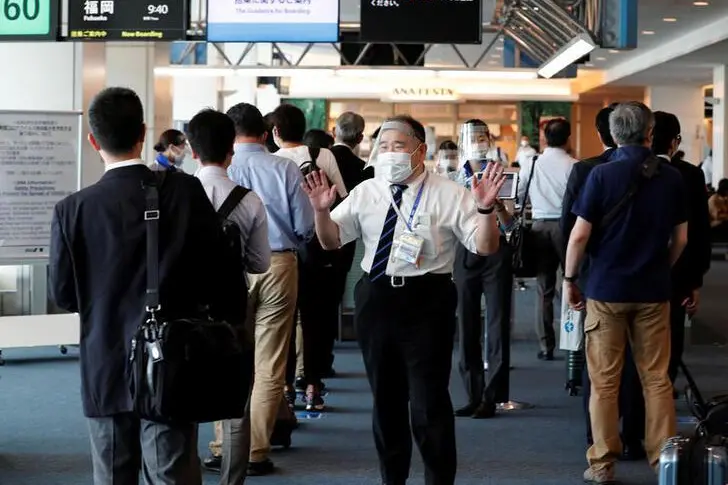PHOTO
TOKYO - Japan may restart business trips to and from Australia, New Zealand, Vietnam and Thailand in the next few months, easing an entry ban to prevent the spread of the new coronavirus, the Yomiuri daily said on Thursday.
Up to 250 business travellers a day will most likely be allowed into Japan from the four countries, which have seen their infection situations stabilise, the newspaper said, without citing sources.
Prospective visitors will be required to submit a document ahead of their trips to Japan showing they are not infected, and will be asked to go through a PCR, or polymerase chain reaction test, upon entry, the paper said.
Japan, which bans entry from more than 100 countries, will negotiate with the four countries with a view to a partial reopening in the summer, it said.
Chief Cabinet Secretary Yoshihide Suga said nothing specific had been decided.
"It is important to resume comings and goings of people partially and gradually," the government spokesman told a regular news conference.
"Relevant ministries are looking into the matter, while taking into consideration infection situations in and outside of Japan and exchanging views with various countries."
In another step to ease coronavirus-related restrictions, the Tokyo metropolitan government is set to lift the "Tokyo alert", issued last week to urge residents to keep their guard up, and allow more businesses to resume operations, public broadcaster NHK said.
The capital saw 22 new cases of coronavirus infection on Thursday, up from 18 on Wednesday. The average daily infection tally over the past week has remained below the capital's threshold of 20 for the easing of restrictions.
The Tokyo metropolitan government plans to advance its business resumption process to "step 3" on Friday, after holding talks with medical experts, NHK said.
Under the new phase, such businesses as videogame arcades and amusement parks will be allowed to reopen.
(Reporting by Kiyoshi Takenaka; Editing by Gerry Doyle and Stephen Coates) ((kiyoshi.takenaka@thomsonreuters.com; +81 3 4563 2788;))





















